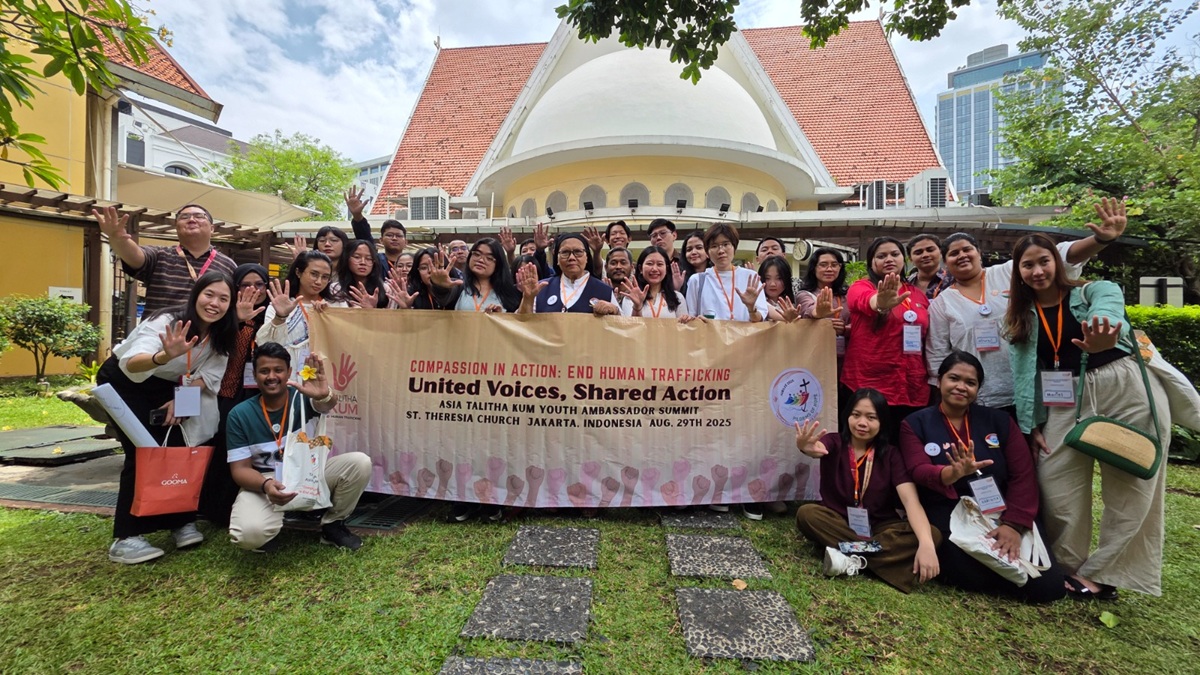Talitha Kum: Women religious and youth against trafficking in Asia
Representatives from 16 countries met in Jakarta to take stock of the initiatives promoted by the network of religious women against this ‘crime against humanity’. Among the priorities are the growth of the Youth Ambassadors experience for the prevention of the phenomenon among the younger generations and interreligious collaboration in victim support networks.
Jakarta (AsiaNews) - ‘Human trafficking is a deep wound in the body of contemporary society, a crime against humanity.’ This statement by Pope Francis was at the centre of the 5th Talitha Kum Asia Conference, held recently in Jakarta, during days marked by massive demonstrations in Indonesia.
Talitha Kum is an international network of religious women founded in 2009 under the UISG (International Union of Superiors General), committed to combating human trafficking through service, awareness-raising and empowerment.
The conference was attended by representatives from 16 Asian countries, including coordinators, leaders and Youth Ambassadors, i.e. young people active in raising awareness on this issue.
The event opened with a Mass celebrated by Fr. Agustinus Heri Wibowo, head of the Justice and Peace Commission of the Archdiocese of Jakarta, followed by a traditional Betawi dance and a procession of symbols representing resistance against human trafficking.
Sr. Paula Kwandao Phonprasertruksa, a Thai nun of the Sisters of Saint Paul de Chartres and coordinator of Talitha Kum Asia, highlighted the objectives of the conference: to strengthen collaboration networks; to embrace the spirit of the Jubilee Year; and to encourage the involvement of the younger generations. For her part, Sr. Abby Avelino, a Filipino nun from Maryknoll who is the international coordinator of this initiative, reiterated the importance of ending the practice of treating people as commodities.
The delegates shared the situations in their respective countries, highlighting new challenges such as the misuse of digital platforms, the climate crisis and forced migration: all conditions that increase the risk of human trafficking. The Youth Ambassadors programme, which is growing globally, was recognised as particularly effective in prevention efforts among young people.
The conference outlined three priorities: first, the need for systemic change that addresses the root causes of inequality, labour exploitation, forced migration and conflict. Second, the empowerment of those who manage to free themselves from trafficking, so that they themselves become inspirational leaders. Finally, interfaith collaboration and networking, involving young people, local organisations and governments.
In addition to the reflection sessions, the conference was enlivened by testimonies from survivors, moments of listening to local communities, and the planning of a three-year programme within Asian regional groups. The Youth Ambassadors also organised an interfaith meeting with young people from Jakarta, formulating prevention action plans for their respective countries.
The conference concluded with a Mass of thanksgiving presided over by Cardinal Ignatius Suharyo, Archbishop of Jakarta, and a joyful cultural evening. Participants returned to their countries with a renewed determination to combat human trafficking through compassion, collaboration and empowerment.
07/02/2025 18:00







.png)










